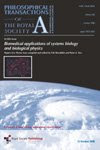I must admit that as a non-expert in Climatology and much else, I have been an early convert to the mainstream view, impressed by the weight, competence of the professionals,not to mention the abundant peer reviewed publications and the International recognition of the importance of these issues (IPCC) , on par with the International Energy Agencies IEA-AEI(Fr) IEA-GW-CC section, Let me add it appeared to me that:
1. On such a scale of possible consequences (mostly dire) that it would be better to play it safe and do something about it, preferably something sensible, rather than the "lets waitt and see" people.
(cf. RealClimate article below)
2. As a professional R and D scientist and engineer, experienced both in the Lab. and in industry (the latter a bit grimy), I know for a fact, that it is easier, but not necessarily better, to pollute than not pollute. (Scientists have an explanation for our collective incompetence it is called Entropy).
3. I feel that I would be better for me (and my colleagues retired or otherwise employed) to concentrate on what as a professionals in metallurgy (great recyclers) materials science, labs or industrialists to put our expert knowledge to use in our discipline. To do so one must have a good grasp of the GW-CC issues.
4. As Scientists, the scientific mind requires that we remain informed and inquisitive, if not skeptical, of inevitable evolution in this fairly new (at least to the general public) and highly complex field by its shear dimension, and possible consequences.
5. We have ample experience success in all sorts of pollution activity (natural and easy) but little of pollution avoidance and depollution (needs much energy, invention and innovation)
RealClimate: The high cost of inaction
www.realclimate.org/index.php/archives/2011/.../the-cost-of-inaction...
14 Oct 2011 – “Unfortunately, the original wedges approach greatly underestimates needed reductions. In part, that is because Pacala and Socolow built their ...Hope you enjoy reading me,
Cheers.











